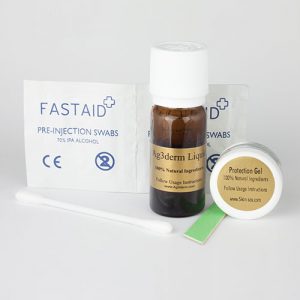Could My Child Have A Pigmentation Disorder?
Human skin color is primarily due to melanin and ranges from almost black to white with a pinkish tinge due to blood vessels underneath, variations in skin hue can be caused by tanning due to exposure to sunlight, but are mainly of genetic origin although the evolutionary causes are not completely certain.
Albinism is a pigmentation disorder characterized by the complete or partial absence or defect of an enzyme involved in the production of melanin. It results from inheritance of recessive gene alleles and is known to affect all vertebrates, including humans.
Most forms of albinism are the result of the biological inheritance of genetically recessive genes passed from both parents of an individual, though some rare forms are inherited from one parent.
The albinism gene is recessive; it does not result in albinism unless a person has two copies of the gene for albinism and no copy of the gene that makes normal pigmentation. When both parents carry the gene, and neither parent has albinism, there is a one in four chances at each pregnancy that the baby will be born with albinism. In this form of pigment disorder, inheritance is called autosomal recessive inheritance
Albinism is divided into two groups. Oculocutaneous albinism (OCA) which involves the eyes, hair and skin pigmentation, which produce the pale skin and eyes affiliated with albinism. People with oculocutaneos albinism can have anything from no pigment at all to almost normal levels of pigmentation. And Ocular (OA) albinism involves the eyes but does not generally cause the lack of skin pigmentation people who have ocular albinism have generally normal skin and hair color, although it is typically lighter than either parent. Ocular albinism is sex-linked; therefore males are more likely to be affected. Males are without another X chromosome to mask recessive alleles on the X they inherit.
Most albinistic humans appear white or very pale as the melanin pigments responsible for brown, black and some yellow coloration is not present.
Because individuals with albinism have skin that partially or entirely lacks the dark pigment melanin, which helps protects the skin from sun’s ultraviolet radiation; their skin can burn more easily from overexposure
As you have seen, this type of skin pigmentation problems is genetic. It cannot be avoided and your children are at risk if you have a family history of skin pigmentation problems. This is the case for other skin pigmentation problems.

